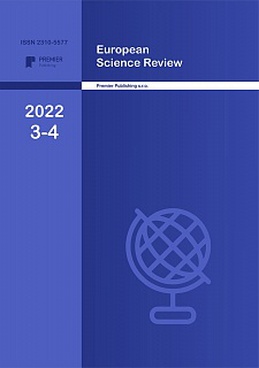MANAGING INTERCULTURAL COMMUNICATIONS IN DIGITAL REALITY: CHALLENGES AND OPPORTUNITIES
Authors
Ketevan Otarashvili

Share
Annotation
In the 21st century, the interaction of civilizations has become an imperative of modern world business. The process is accompanied by contradictions, the overcoming of which brings us closer to world citizenship. The world is becoming more and more united on the basis of economic, technological, information integration. Increased integration leads to an increase in cultural identity. This process creates a conglomerate of cultural societies that differ in their history, traditions, language and religion. They develop, interact and influence each other on the basis of intercultural communication.Both, public and private companies, regardless of their scale, are aware of the importance of managing intercultural communications. This is a new challenge for them, however, despite many difficulties, good shifts are observed (Thomas. 2008). Given the modern reality, the strategies for managing intercultural communications have almost completely shifted to the digital space, which, like all innovations, is accompanied by new opportunities and difficulties.While in early 2020, we thought we were sufficiently adapted to digital communications, the reality showed us - we misunderstood the role of digital communications. Companies, public and private sectors have had to adapt to the new reality, rotate the work environment from offices to homes, manage staff remotely, train them with new technical skills, quickly eliminate unforeseen technical problems and completely transform into a new - digital reality. Given that the management of intercultural communications is already a novelty for companies, they will have to create a new reality to minimize intercultural distance in remote - digital management.
Keywords
Authors
Ketevan Otarashvili

Share
References:
- David C.Thomas. (2008) CROSS-CULTURAL MANAGEMENT: ESSENTIAL CONCEPTS 2ND EDITION// Loss Angeles, Sage Publiication.
- Richard D. Lewis. (1998) CROSS-CULTURAL COMMUNICATION, published by Transcreen Publications.
- Christopher P. Earley. E. Mosakowski (2004) CULTURAL INTELLIGENCE. Harvard Business Reviw, Cross cultural Management, From the Magazine (October 2004).
- Forbes Georgia. (2019) 100 LARGEST COMPANIES IN GEORGIA. Article, April 2019.
- Vanishvili Merab, Katsadze Irakli, & Vanishvili Nino. (2020). CORONAVIRUS PANDEMIC AND PROSPECTS OF THE GEORGIAN ECONOMY// Achievements and prospects of modern scientific research. Abstracts of the 1st International scientific and practical conference. Editorial EDULCP. Buenos Aires, Argentina. 2020. Pp. 556-568. 556–568. https://sci-conf.com.ua/i-mezhdunarodnaya-nauchno-prakticheskaya-konferentsiyaachievements-and-prospects-of-modern-scientific-research-6-8-dekabrya-2020-godabuenos-ajres-argentina-arhiv/.
- Otinashvili Ramaz, Vanishvili Merab. (2020). COMPETITIVE STRATEGY IN BUSINESS // The world of science and innovation. Abstracts of the 4th International scientific and practical conference. Cognum Publishing House. London, United Kingdom. 2020. Pp. 127-133. 127–133. https://sci-conf.com.ua/iv-mezhdunarodnaya-nauchno-prakticheskaya-konferentsiya-theworld-of-science-and-innovation-11-13-noyabrya-2020-goda-london-velikobritaniyaarhiv/.


